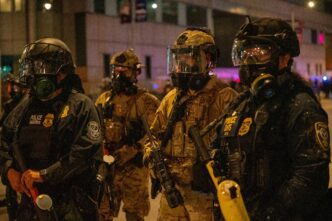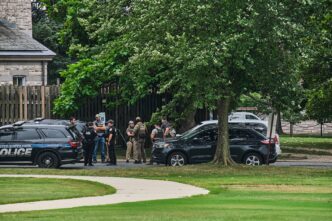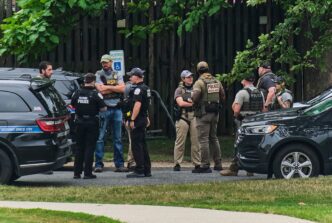A tragic series of events unfolded in Gaza as Israeli strikes claimed at least 22 lives, coinciding with a visit by a Vatican envoy to the region’s Christian community for a pre-Christmas Mass.
The ongoing conflict between Israel and Hamas escalated over the weekend, as Israeli airstrikes targeted various locations across the Gaza Strip. According to Palestinian medical officials, these strikes resulted in the deaths of at least 22 individuals, including five children. The strikes came at a time when Gaza’s small Christian community was marking a pre-Christmas Mass, attended by Cardinal Pierbattista Pizzaballa, the Catholic Church’s leader in the Holy Land.
The Israeli military stated that its operations targeted Hamas militants, who they claim were using civilian areas for cover. One of the significant strikes hit a school in Gaza City, reportedly killing eight people, with three of them being children. The school was serving as a shelter for displaced people. This particular strike was justified by the Israeli forces as targeting militants from Hamas.
In Deir al-Balah, another airstrike on a residence resulted in the death of eight individuals, including women and children. The Israeli military claimed this action was against an Islamic Jihad militant. The aftermath of these strikes saw local communities in mourning, as relatives and neighbors gathered for funeral processions amidst the devastation.
As the violence continues, there have been discussions around a potential ceasefire between Israel and Hamas. This proposed agreement would involve the release of both Israeli hostages and Palestinian detainees. However, significant hurdles remain, preventing any immediate resolution to the conflict.
The Vatican’s involvement brought a layer of global attention, as Cardinal Pizzaballa’s visit coincided with criticism from the Pope regarding Israel’s military actions. Pope Francis condemned the bombings as acts of cruelty rather than legitimate warfare. He also called for an urgent ceasefire and supported initiatives to investigate whether these actions amounted to genocide, an allegation brought forth by international human rights organizations.
The conflict’s backdrop includes an October 7, 2023, incident where Hamas militants initiated an attack on southern Israel, resulting in the deaths of roughly 1,200 people, most of whom were civilians. This has been followed by the Israeli military’s robust retaliation involving extensive bombings and a subsequent ground invasion, leading to a heavy toll on the Palestinian population in Gaza.
Amidst the fighting, Gaza has experienced significant humanitarian challenges. Over 45,000 Palestinians have reportedly been killed, with women and children making up more than half of the casualties. The relentless conflict has displaced approximately 90% of Gaza’s 2.3 million residents, forcing them into overcrowded and unsanitary camps.
Furthermore, the Israeli military operation has been particularly intense in northern Gaza, prompting massive evacuations and severely limiting humanitarian aid. COGAT, the Israeli body managing civilian affairs in Gaza, claims to have facilitated some evacuations from hospitals under duress. However, discrepancies have emerged regarding alleged evacuation orders and the actual situation on the ground.
In a related development, tensions remain high in the West Bank, where a member of the Palestinian security forces was killed in Jenin by suspected militants. The incident is part of ongoing unrest, aggravated by a rare security crackdown by the Palestinian Authority, which faces criticism for its collaboration with Israeli security forces.
The current situation in Gaza underscores the complexities and humanitarian impact of the long-standing Israeli-Palestinian conflict. As efforts for a ceasefire continue, the affected populations remain in a state of uncertainty and suffering.
Source: News4jax








